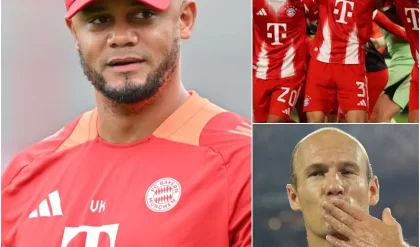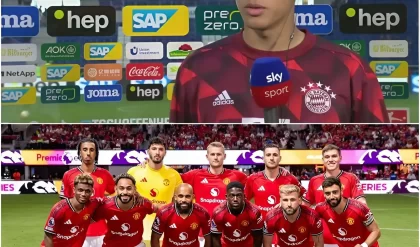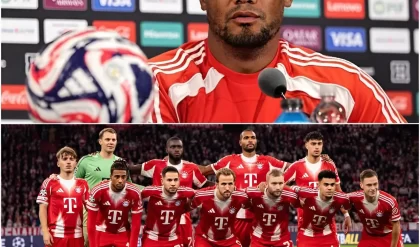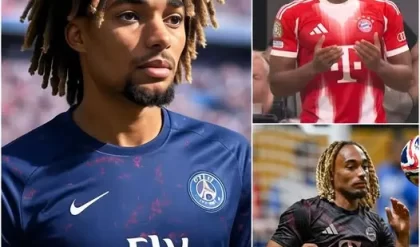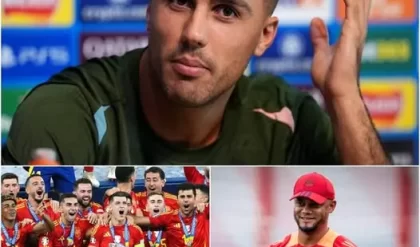The 2024 Paris Olympics were marked by extraordinary athletic achievements, but few stories captured global attention like that of Algerian boxer Imane Khelif. The 25-year-old welterweight champion, who clinched gold in the women’s 66-kilogram division, found herself at the heart of a heated gender eligibility controversy that sparked debates across media, social platforms, and political spheres. Amidst swirling rumors and accusations, Khelif’s father, Amar Khelif, stepped forward to publicly affirm his daughter’s identity, stating unequivocally that Imane was born and raised as a woman, aiming to quell the speculation that has overshadowed her historic victory.

The controversy erupted after Khelif’s first-round bout against Italy’s Angela Carini, which ended abruptly after 46 seconds when Carini withdrew, citing intense pain from Khelif’s punches. The match reignited scrutiny over Khelif’s eligibility, stemming from her disqualification from the 2023 World Championships by the International Boxing Association (IBA). The IBA, then led by Russian president Umar Kremlev, claimed Khelif failed a gender eligibility test, alleging elevated testosterone levels and the presence of XY chromosomes. These claims, lacking transparent evidence, were dismissed by the International Olympic Committee (IOC) as flawed and arbitrary. The IOC, which oversaw boxing at the Paris Games after banning the IBA for governance issues, confirmed that Khelif met all eligibility criteria, with her passport and history of competing as a woman since her debut, including at the 2020 Tokyo Olympics.

Amar Khelif addressed the media in Tiaret, Algeria, holding up his daughter’s birth certificate and family records to affirm her female identity. “Imane is my daughter, born a girl, raised as a girl, and she has always been a woman,” he said, according to Reuters. He expressed pride in her Olympic triumph but anguish over the “unfair attacks” she endured, calling for an end to the harassment. His statement came as Imane faced a barrage of online abuse, with figures like former U.S. President Donald Trump and author J.K. Rowling falsely labeling her as male or transgender, amplifying the controversy to millions. Khelif, visibly emotional after her gold-medal win against China’s Yang Liu, declared, “I am a woman like any other. These attacks harm human dignity.”

The IOC and Algerian Olympic Committee fiercely defended Khelif, condemning the IBA’s tests and the subsequent misinformation. IOC President Thomas Bach called the backlash “hate speech,” emphasizing that Khelif and Taiwan’s Lin Yu-ting, who faced similar scrutiny, were women by all legal and competitive standards. The IOC’s eligibility rules, based on passport documentation, allowed both to compete, a decision supported by their consistent participation in women’s categories. GLAAD and Athlete Ally clarified that Khelif is a cisgender woman, not transgender or intersex, and criticized the transphobic narratives that fueled the debate. The IBA’s lawsuit against the IOC, filed in February 2025, further escalated tensions, with the boxing body citing safety concerns but failing to provide verifiable evidence, as reported by NBC News.

Khelif’s journey to gold was a testament to her resilience. She dominated her Olympic run, winning every round unanimously, including a semifinal against Thailand’s Janjaem Suwannapheng and the final at Roland Garros, where Algerian fans chanted her name. Her victory, dubbed “The Night of Destiny” in Algerian media, sparked celebrations nationwide, with murals painted in her honor in Tiaret. Yet, the gender row cast a shadow. Khelif filed a cyberbullying lawsuit against figures like Rowling and Elon Musk, whose posts reached over 100 million views, as confirmed by her lawyer Nabil Boudi to Le Monde. The Paris Prosecutor’s Office is investigating, signaling a broader fight for justice.
The controversy highlights ongoing challenges in defining gender eligibility in sports. The IBA’s reliance on chromosome-based criteria clashes with the IOC’s more inclusive approach, raising questions about fairness and privacy. Khelif’s case, intertwined with geopolitical undertones due to the IBA’s Russian ties, underscores the need for transparent, scientifically sound policies. For now, Khelif remains a national hero, her gold medal a symbol of triumph over adversity. “This medal is for all Algerians who stood by me,” she said, kissing her medal. As she prepares for future competitions, her father’s words resonate: “Imane is our pride, and no one can take that away.”
